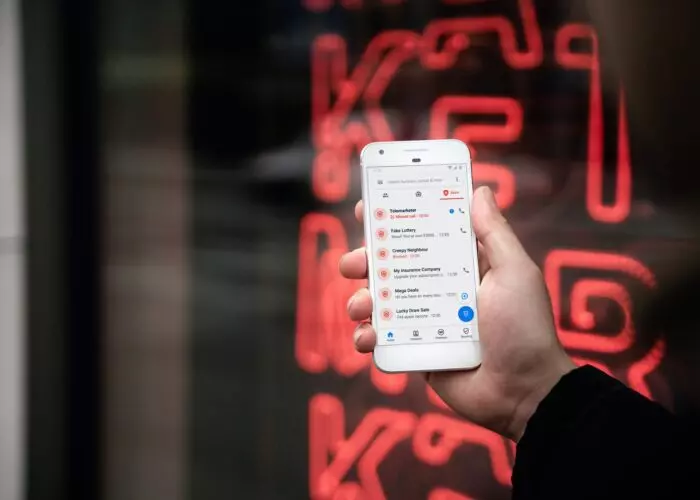
Craigslist is well known as a valuable service provider that facilitates transactions between happy buyers and sellers and has become one of the world’s most famous virtual garage sale spaces. But, as scammers besiege the platform, that fame may be starting to slide towards notoriety.
Swindlers have caught on that they can make an additional income by selling the personal data of the victims of their tried-and-trusted craigslist scam tactics. Phishing and spoofing give them an extra income even as they milk their victims for cash.
The information from these small, unreported data breaches is often sold to marketers and advertisers on the dark web.
Nuwber provides individuals with comprehensive reports of all their personal information that may be drifting around on the internet. Their data includes official government information, your social media activities, birth and marriage records, and the like, plus information of uncertain origin that have been recycled by marketing companies. Many Nuwber clients are now using the service to discover the extent of the damage to their privacy.
Why do we fall for craigslist scams?

Scammers work pretty hard at their chosen vocation, They’re almost a breed apart; overflowing with chutzpah and with a gut instinct for human weaknesses.
It’s easier to spot scams if we take a minute to understand why 20-year-old scams continue to deliver the swindled goods.
Scammers take advantage of predictable human Failings
The average Joe/Joelene will tell a white lie (plus the occasional whopper) but can’t digest the fact that deception and dishonesty is a lifestyle choice for some. We usually choose to see the good rather than the bad – or at least prefer to live in blissful ignorance.
- Our instinctive politeness can sometimes override good judgment. We don’t want to appear rude, and we are reluctant to give a stranger the impression that we dislike or distrust him even when we do.
- Some scammers use sad stories, often involving a child or children. They display a fake naivety to invoke feelings of superiority and pity in their victim, to invoke our natural leaning towards kindness. We end up buying things we don’t need or pay more for something just because we feel sorry for them.

- They appeal to your patriotism when they impersonate a serviceman who has just been deployed somewhere far away.
- When you start displaying signs of wavering because you sense something amiss, they appeal to your sense of decency to pressurize you into giving them the benefit of the doubt.
- FOMO is a well-known and heavily-used sales tactic, used by every business in the world. Since you’ve been browsing Craigslist, the scammer knows you are looking for a bargain. It’s easy for him to turn up the heat by fanning your fear of missing out on a good deal.
- Last but not least: they take advantage of our greed. Remember the adage: “You can’t scam an honest man”? You probably won’t trample old ladies on your way to the shoe section at a Black Friday sale, but few people will turn down a massive bargain when the item on offer is exactly what they’ve been looking for.
Sellers therefore often claim misfortune as the reason for a mad price. We may feel pity, but we all have that instinctive drive to get ahead by any legal means in a massively competitive world.
Popular scam tactics based on well-known human Failings

1. A reasonable explanation for everything
Craigslist emphasizes that their service is mostly meant for local transactions. However, even “local” scammers may claim that they are traveling, relocating, doing missionary work, or have just been deployed overseas.
They provide plausible explanations for the reasons why you must send money to a foreign address, transact via emails and texts, or cannot meet in person, and can easily justify their urgent need for an upfront payment of the full amount or part of the selling price upfront.
2. An appeal to authority

Scammers name-drop. They invoke the name or brand of authority as evidence of their bona fides.
Craigslist, as a distinct brand, has been around for so many years that an entire generation has never known a world without it. Surely, the subconscious reasoning goes, if it was all bad, it wouldn’t exist anymore? When you browse the craigslist website, it means you value the authority of craigslist rather than that of insert.name.of.we.dont.guarantee.anything.com.
This principle of using brand names is the reason why scammers drag in Paypal, EBay, even iTunes and Western Union. Most people strongly associate these brands with successful transactions and services and it’s easy to take reassurance from their alleged involvement. We’ve listed a few typical scams involving these brands below.
3. Craigslist Verification or Purchase Protection Plan scam
When your prospective buyer or seller has the distinction of being a verified, certified, Craigslist partner with an official-looking document from Craigslist or similarly impressive third party, take to your heels.
The Craigslist terms and conditions (TOS) specifically excludes mediation between buyers and sellers and refutes the existence of a purchase protection plan. In fact, Craigslist warns users against buyers or sellers who cite a position of good standing or trust.
Phishing alert: Don’t click any links in official-looking emails, certificates or documents. You should also actively distrust any links to “satisfied customers” which a seller supplies for reference-checking.
4. Paypal scam
It’s a simple scam: the seller receives your money but doesn’t produce the goods. The phishing twist: they may send you a fake PayPal email payment confirmation or a malicious link where you can track your order. When they develop “delivery difficulties” they may even request further payment via yet another payment service.
5. Money Wire scams
You have no recourse if something goes wrong, and because overseas scammers often use companies like MoneyGram or Western Union to receive the money and run, you should never use a wire transfer service for a rental or purchase from an unknown person. Just … don’t.
6. Rental scams

Legitimate prospective landlords often do require a credit check. The scammer may insist on a credit score as fresh as one week old. Phishing alert: he will also need personal information like your current address, rental period, your job title, the period of employment at your current employer, and your annual income before a show date can be set.
Spoofing alert: he’ll casually provide a link to a credit reporting agency he uses. The link may lead to a spoofed website where they’ll capture your personal information for use in credit card or identity theft. Even if the link leads to a legitimate credit score company website, the scammer could be earning commission for providing the company with sales leads.
7. Fake Money Orders
Sophisticated technology has become cheap and widely available. It’s easy to print fake money orders or proof of a wire transfer from trusted agencies like Western Union. This is the home territory of the Nigerian 419 scammers, and you’ll lose your money if you send the goods before the fake money order clears.
The phishing twist: the buyer may request your personal information to enable them to claim the money at the receiving end.
8. Over-payment with fake checks

An overeager buyer will send you a hasty advance payment to make sure you don’t sell the item to someone else. When it transpires that the value of the money order or cashier’s check is far more than the selling price, he’ll proclaim his absolute trust in your integrity to refund the difference.
When a sudden disaster strikes his family, he’ll plead for an immediate repayment since his cashier’s check will undoubtedly be honored. However, by the time you try to cash that big check of his, he’ll be long gone, and you might be nabbed for attempted check fraud.
9. Fake Escrow Service Site
There are plenty of fake escrow service sites around. Don’t click on the handy (phishing or spoofed) link provided – pick the escrow service yourself.
10. Craigslist job scam

Make $$$ online! After employing you as a remote worker, disaster strikes your new employer who, for a short time, will be unable to receive money from their customers.
Luckily, you can clear checks and money orders via your personal account, and they will even pay commission for every transaction! The only condition is that you wire them any money you receive, minus your commission, as soon as it hits your account.
You’ll be left holding the can when those “customer payments” don’t clear, and may be liable for prosecution as a fake escrow service.
Should we still use craigslist?
By all means, use Craigslist to find bargains, but trust your gut instinct. Remember TANSTAAFL – There Ain’t No Such Thing As A Free Lunch, and if it sounds too good to be true you should head the other way.
Guard your privacy and regard every email or link as phishing until otherwise proven. It’s the Wild West out there in data theft-land!








